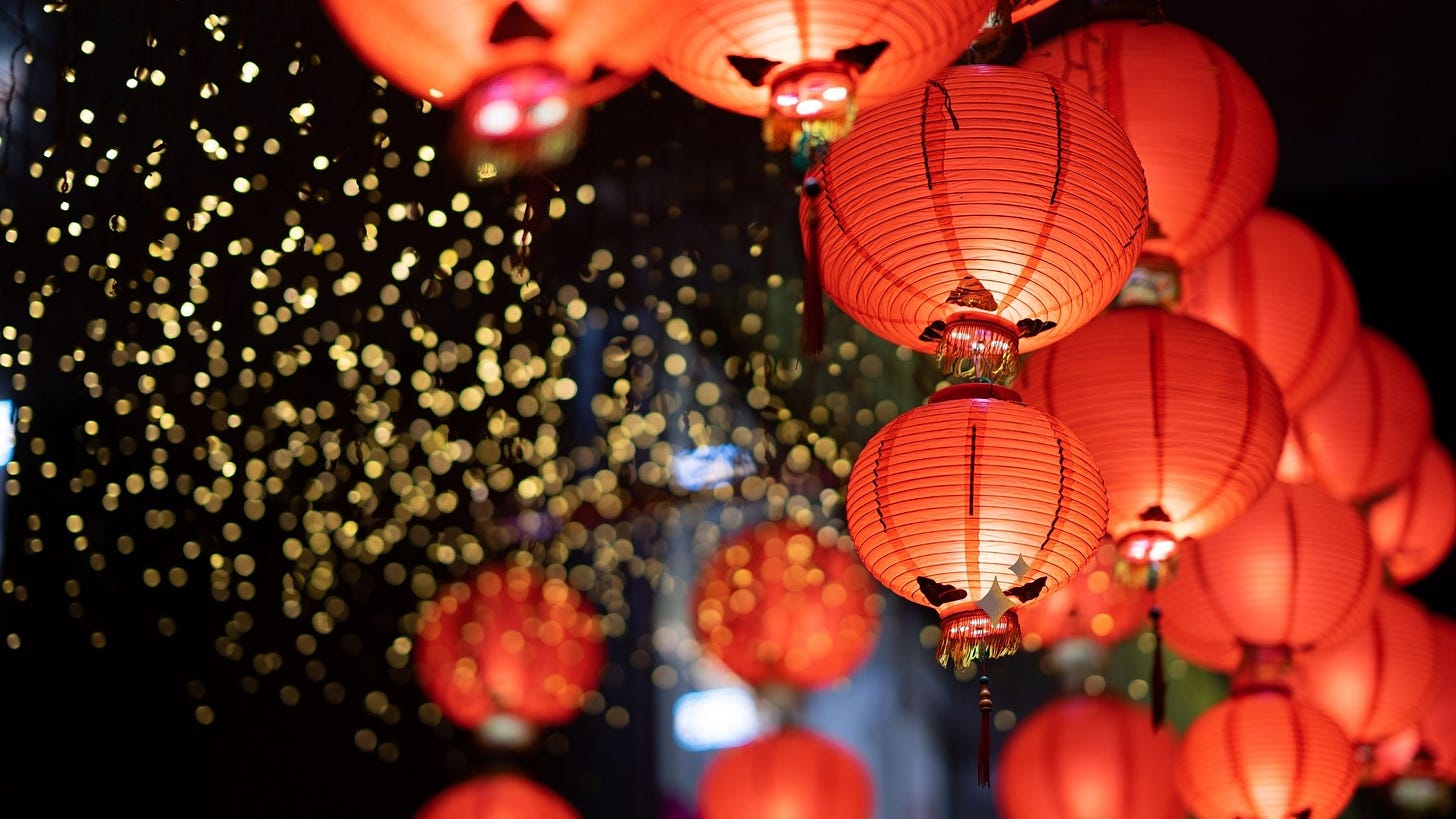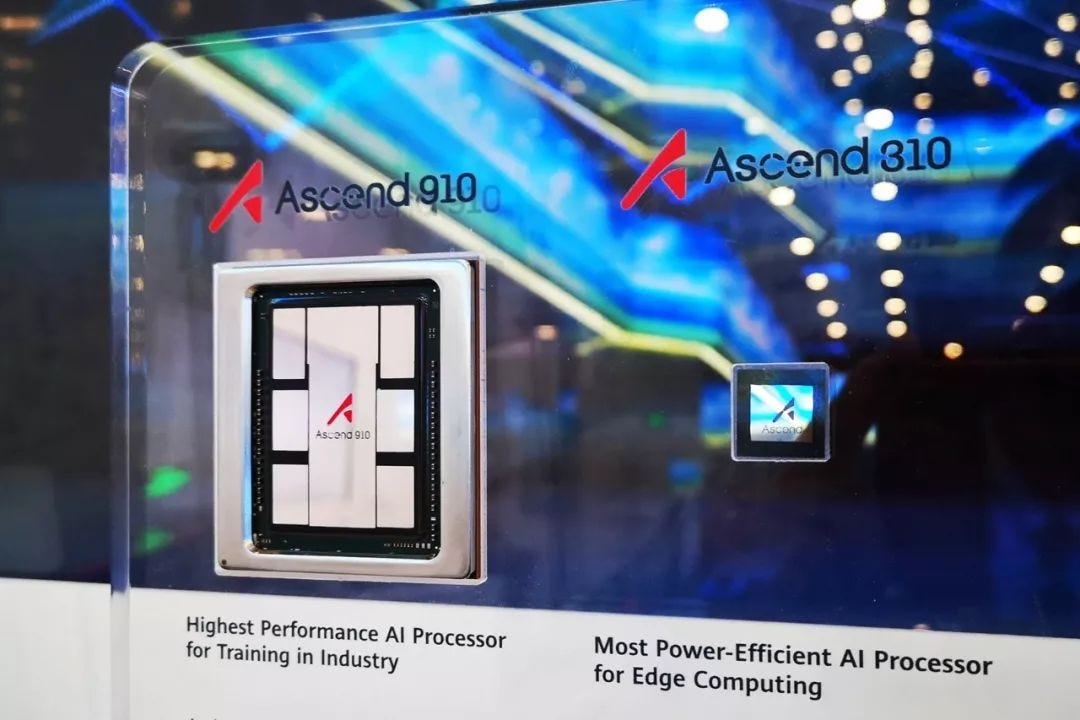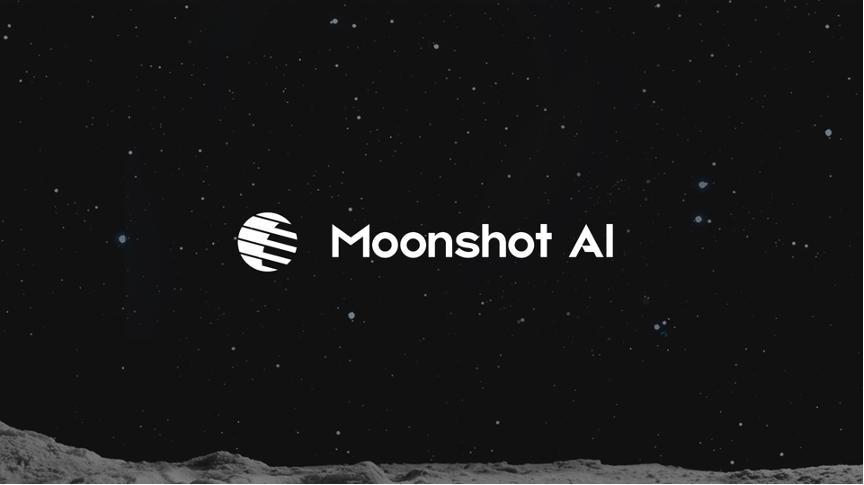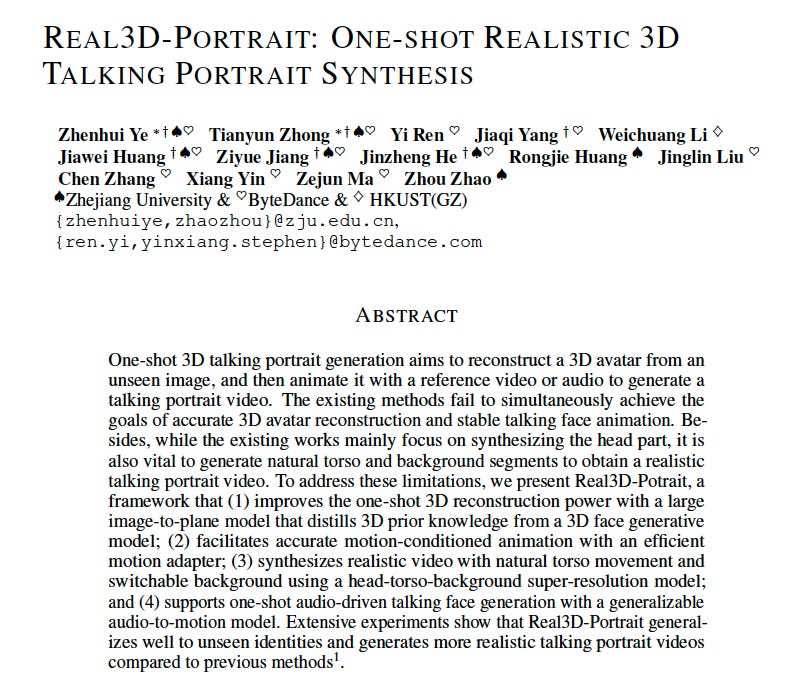🧧AI Takes Over Chinese New Year, Huawei Prioritizes AI Chip Production, and a Chinese LLM Startup Raises $1B
Weekly China AI News from February 5, 2024 to February 19, 2024
Hello everyone, late happy Chinese New Year! In this issue, I talked about the exciting AI features that were a part of the Chinese New Year celebrations. Huawei is reportedly prioritizing AI chip production over its 5G smartphones. Chinese AI startup Moonshot AI has raised $1 billion in Series B funding. Plus, OpenAI’s video-generation model Sora has taken the world by surprise, including China.
AI Adds Zest to Chinese New Year Celebrations
What’s New: This year’s Chinese New Year has been marked by AI. Chinese companies and brands blend the rich cultural heritage of the Spring Festival with AI, aiming not just to enhance the festive experience but also to attract new users.
How it Works:
Baidu: Baidu’s ERNIE Bot allowed users to create digital avatars - with one photo and three voice recordings - for sending Chinese New Year greetings. The mobile Baidu App rolled out AI tools for creating personalized greetings, artistic portraits, festive dragons, and New Year wishes.
Alibaba: Tongyi Qianwen featured AI-generated themed family portraits, animated dances for celebration, and swapping with dragons.
Alipay: Alipay infused its annual Five Fortune event with AI elements such as “AI Fortune Hunt” and “AI Photo Studio”, drawing nearly 600 million interactions.
New Year’s Greeting Challenge: During the Chinese New Year, when family members gather, older relatives often ask personal questions that may make younger generations feel awkward, such as “How much money do you make?” “How many children do you have?” or “Are you married?”
An LLM-powered text game went viral by simulating this experience. In the game, named The Ultimate New Year’s Greeting Challenge (决战过年之巅), players need to navigate through typical questions and comments from AI-generated relatives on topics, ranging from education and career choices to marital status and plans for purchasing a house. Launched on January 31, the game gained a million users within two days.
Huawei Prioritizes AI Chip Production Over Smartphone
What’s New: The increasing demand for Huawei’s AI chips and its production limitations have led the Chinese tech giant to focus more on AI development, impacting the production of its flagship Mate 60 5G smartphones, Reuters reported.
How it Works: One Huawei’s production facility is tasked with manufacturing both its Ascend AI chips and Kirin processors, which compete with Apple’s iPhone chips.
Reuters said Huawei is shifting its focus away from smartphones, even as it recently became the top smartphone seller in China for the first time in over three years.
Why it Matters: This shift in Huawei’s focus underscores the impact of U.S. sanctions, which have restricted access to advanced chipmaking tools since 2019 on grounds of national security, a claim Huawei contests.
With the U.S. imposing limitations on high-end chip exports to China, Huawei emerges as critical to meeting China’s growing AI computing market demands. The Chinese tech giant still needs to improve the yield rate of its AI chip production and optimize its software system, similar to Nvidia’s CUDA.
Moonshot AI Secures Record $1 Billion in Series B Funding
What's New: Moonshot AI, an emerging Chinese LLM startup, has raised $1 billion in Series B funding, backed by Alibaba, Meituan, Xiaohongshu, and Hongshan, two Chinese media outlets reported. The company is recognized for its advanced long context window technology and its popular chatbot, Kimi Chat.
This investment boosts Moonshot AI’s valuation to over $2.3 billion, on par with French AI startup Mistral AI.
Another Chinese LLM startup is nearing the completion of its own $1 billion financing round, Chinese media LatePost reported.
Why it Matters: These investments reflect unprecedented enthusiasm and anticipation for LLM firms, with Moonshot AI securing single funding of $1 billion in just 11 months—a feat that took leading facial recognition companies SenseTime and Megvii four and seven years, respectively.
Chinese tech giants are fueling this momentum by backing startups.
Alibaba, one of the most aggressive investors, has poured money into Zhipu AI, Baichuan AI, and 01.AI.
Meituan has invested in Zhipu AI and acquired tech firms like Light Years Beyond.
Tencent and Xiaomi have both funded companies like Baichuan AI, Zhipu AI, and MiniMax.
Weekly News Roundup
OpenAI’s new text-to-video tool, Sora, has shocked the world with its Hollywood-quality output. On Weibo, Chinese netizens expressed concerns over the widening AI gap between the US and China. For insights into China’s progress in generative video technology, TechCrunch's latest article is worth reading. (TechCrunch)
Meizu recently announced that it is terminating traditional smartphone projects to exclusively develop AI-enabled devices. (SCMP)
Abu Dhabi’s G42 is reducing its presence in China and focusing on investments in Western markets to address US worries about its connections with China. (Bloomberg)
Young Chinese are turning to AI companions to cope with the stress of a rapidly moving and high-pressure urban life. (SCMP)
Trending Research
Rethinking Optimization and Architecture for Tiny Language Models
Real3D-Portrait: One-shot Realistic 3D Talking Portrait Synthesis








